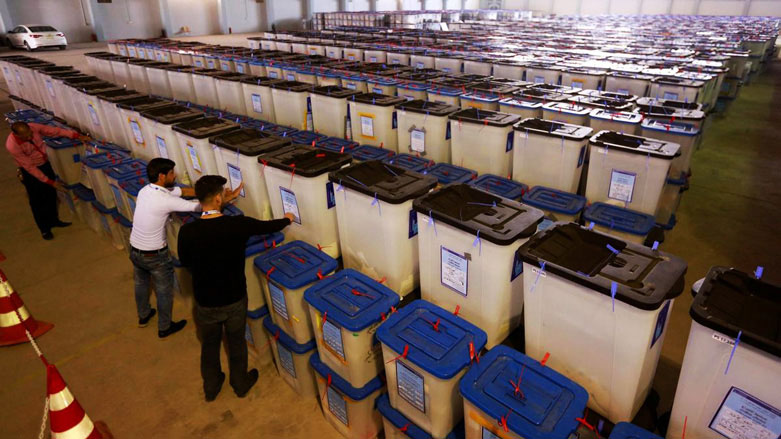UN has 'confidence' in Iraq's ability to hold election recount, offers assistance

ERBIL (Kurdistan 24) – The United Nations' (UN) envoy to Iraq announced its continued support for and assistance to Iraq's electoral process after a Supreme Court ruled in favor of a manual recount but against a controversial parliamentary decision to annul thousands of votes in May's national election.
Special Representative Ján Kubiš said in a statement released Thursday that he was "confident that the Board of Judges will develop such modalities of recount that will enable them to conduct the work as expeditiously as possible and in a fully transparent way, that will increase public confidence in the election process, enhance its integrity, deliver electoral justice and contribute to the legitimacy of the results of the elections."
The UN often finds itself in a difficult position, aiming to walk the tightrope of publicly supporting and encouraging the electoral process in countries like Iraq by working with its less-than-perfectly functioning institutions without appearing to support or undermine particular parties or decisions.
Such carefully-worded but decidedly wordy statements like this one from the United Nations Assistance Mission for Iraq (UNAMI) are often the result.
"The Special Representative calls on all political actors and their supporters to respect the law, and to remain committed to resolving any electoral disputes peacefully and adjudicate verifiable complaints through the appropriate legal channels and mechanisms, in support of the electoral and political process and democracy in Iraq," it continued.
The head of the Supreme Judicial Council read a statement to the press earlier that day which characterized the parliamentary order to implement a full manual recount of votes as "correct."
He said that the court, however, sees the cancellation of ballots cast by security forces in the Kurdistan Region, Iraqis living abroad, and those living in camps as not in line with the constitution, and ruled that they should be counted. Nullifying them, the court's decision read, would be a "waste of these votes and a confiscation of the will of the voters."
It has been unclear which of several recent contested decisions by various governing bodies have been legitimate in the past two weeks. Iraq's Independent High Electoral Commission (IHEC) is charged with overseeing elections in the country, and parliament is not given jurisdiction over them.
The Supreme Court, however, is given final say on elections in Iraq, so whether or not the parliament exceeded its authority with the initial resolution, the court's decision on it would appear to be binding.
Also on Thursday, IHEC announced it had begun planning the implementation the Supreme Court’s ruling.
Through Kubiš' statement, the UN said it reiterated "its readiness to continue providing advice, support and assistance to the elections management bodies in line with UNAMI’s mandate."
